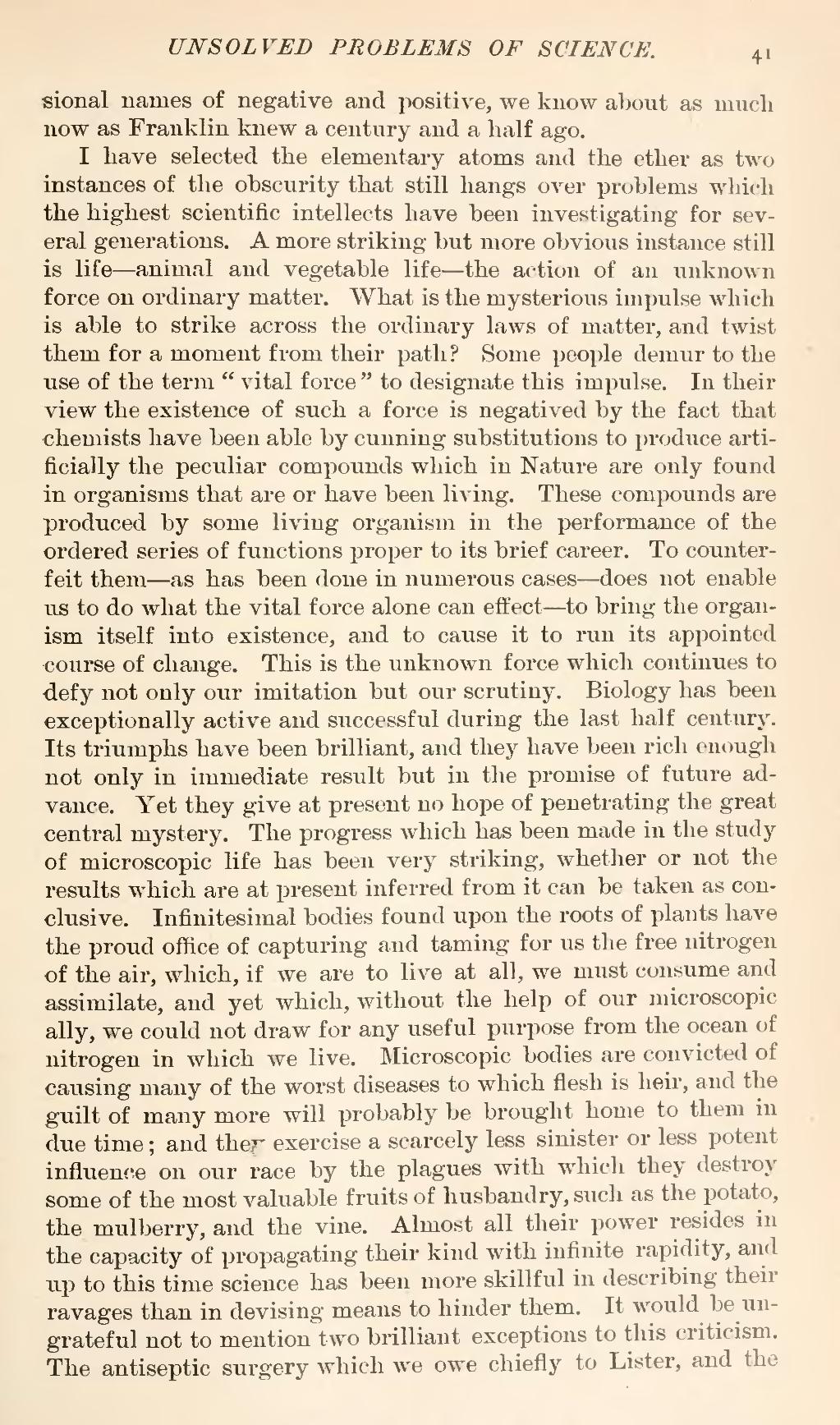sional names of negative and positive, we know about as much now as Franklin knew a century and a half ago.
I have selected the elementary atoms and the ether as two instances of the obscurity that still hangs over problems which the highest scientific intellects have been investigating for several generations. A more striking but more obvious instance still is life—animal and vegetable life—the action of an unknown force on ordinary matter. What is the mysterious impulse which is able to strike across the ordinary laws of matter, and twist them for a moment from their path? Some people demur to the use of the term "vital force" to designate this impulse. In their view the existence of such a force is negatived by the fact that chemists have been able by cunning substitutions to produce artificially the peculiar compounds which in Nature are only found in organisms that are or have been living. These compounds are produced by some living organism in the performance of the ordered series of functions proper to its brief career. To counterfeit them—as has been done in numerous cases—does not enable us to do what the vital force alone can effect—to bring the organism itself into existence, and to cause it to run its appointed course of change. This is the unknown force which continues to defy not only our imitation but our scrutiny. Biology has been exceptionally active and successful during the last half century. Its triumphs have been brilliant, and they have been rich enough not only in immediate result but in the promise of future advance. Yet they give at present no hope of penetrating the great central mystery. The progress which has been made in the study of microscopic life has been very striking, whether or not the results which are at present inferred from it can be taken as conclusive. Infinitesimal bodies found upon the roots of plants have the proud office of capturing and taming for us the free nitrogen of the air, which, if we are to live at all, we must consume and assimilate, and yet which, without the help of our microscopic ally, we could not draw for any useful purpose from the ocean of nitrogen in which we live. Microscopic bodies are convicted of causing many of the worst diseases to which flesh is heir, and the guilt of many more will probably be brought home to them in due time; and they exercise a scarcely less sinister or less potent influence on our race by the plagues with which they destroy some of the most valuable fruits of husbandry, such as the potato, the mulberry, and the vine. Almost all their power resides in the capacity of propagating their kind with infinite rapidity, and up to this time science has been more skillful in describing their ravages than in devising means to hinder them. It would be ungrateful not to mention two brilliant exceptions to this criticism. The antiseptic surgery which we owe chiefly to Lister, and the

